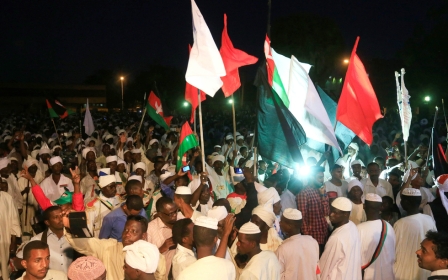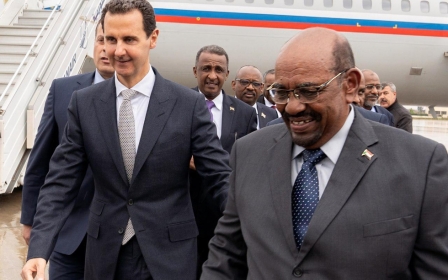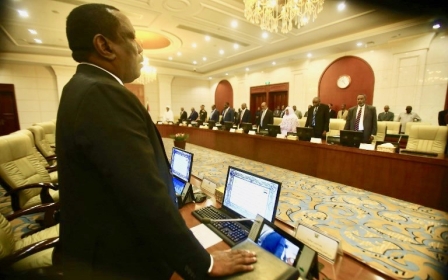Sudanese protesters plan to march on presidential palace
After days of protests against the rule of Sudan's President Omar al-Bashir, activists and unions have backed calls for a march on the presidential palace later this week.
The protests, fuelled by the rising cost of living but often directed against Bashir's policies, have widely been considered disorganised up until this point.
However, plans for a march on the palace, first announced by the Sudanese Professionals Associations on Sunday, have gained momentum, coming on the heels of a Sudanese doctors' strike on Monday.
The peaceful march on the palace is expected to begin Tuesday at Al-Jinzeer Square in the capital Khartoum to "demand the Sudanese regime to give up political and executive power to the Sudanese people who flooded the Sudanese cities".
The participants are calling for an end to the National Congress Party's "30 years of military dictatorship", the association, an umbrella coalition of independent professional unions, said in a statement.
"We would like to express our grave concerns regarding the grave killings during the past five days and to the mass detentions and torture," it said.
Using the hashtag "25th December procession", social media users have promoted the march, and it has also received the backing of other groups in the country, including the Sudan Pharmacists Committee and several Sudanese artists, who released a joint letter of support.
The association said it also plans to submit a written demand for Bashir to step down, AP news agency reported.
Bashir spoke out against the protests for the first time on Monday, which marked the sixth day of demonstrations across Sudan, telling citizens to ignore "attempts to instil frustration".
In a statement published by the official Sudan News Agency, Bashir promised economic reforms and praised the response of the country's security forces.
Also on Monday, Sudanese police used tear gas to disperse soccer fans who tried to stage a protest as soon as they exited a match in Khartoum.
Security in the capital had been fortified ahead of the planned protest and car and pedestrian traffic in the capital were reduced on Monday.
According to Sudanese officials, eight protesters have been killed since the protests erupted last Wednesday in the city of Atbara, but opposition leader Sadig al-Mahdi put the death toll at 22.
Exact casualty figures have been hard to ascertain, but Reuters reported on Monday that at least 12 people have been killed since the demonstrations began last week.
Tensions over bread shortages have simmered since the beginning of the month, alongside broader concerns about the country's economic difficulties and austerity measures imposed by Bashir.
Protesters in Atbara, a northeastern hub for Sudanese workers, torched the ruling party's local offices, setting off similar events in nearby towns that then spread to the rest of the country.
The Sudanese authorities detained 14 leaders of an opposition coalition on Saturday, a spokesman for the group said.
Farouk Abu Issa, the 85-year-old head of the National Consensus Forces, one of the country's two main opposition groups, was among those detained after a meeting in Khartoum, said spokesman Sadiq Youssef.
"We demand their immediate release, and their arrest is an attempt by the regime to stop the street movements," Youssef said, adding that Abu Issa was in poor health and was transferred to hospital after his detention.
Stay informed with MEE's newsletters
Sign up to get the latest alerts, insights and analysis, starting with Turkey Unpacked
Middle East Eye delivers independent and unrivalled coverage and analysis of the Middle East, North Africa and beyond. To learn more about republishing this content and the associated fees, please fill out this form. More about MEE can be found here.




